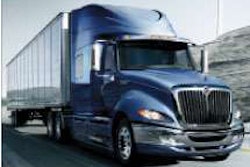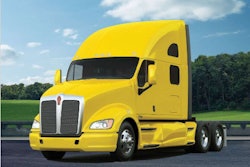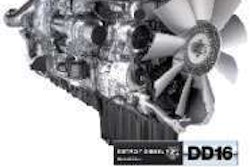Bloodless revolution

News of the electronic onboard recorder mandate for reckless carriers suggests even bigger news – that the order is but a stepping stone toward requiring EOBRs for all carriers. That possible development, though shocking to imagine today, could well be a snoozer when it finally happens.
The reason is there are too many factors propelling demand for onboard recorders. These factors, such as their ease of use and elimination of paperwork, have already pushed tens of thousands of units into trucks, as our cover story by Senior Editor Todd Dills shows. Probably the main reasons, though, relate to the industry reaching a point where the impact of hours of service violations in the safety scoring realm concerns far more carriers than does whether a cheating driver gets caught.
The onset of Comprehensive Safety Analysis 2010, now delayed mostly to next year, will have everyone looking over their shoulder at whom they do business with, as well as looking in the mirror to see how their partners perceive them. With CSA 2010 generating more public records and taking far more disciplinary actions, those perceptions will become like high-definition television, where once-smooth faces suddenly reveal ugly blemishes.
Fleets will raise their safety standards on drivers they’re willing to use. Likewise, shippers and brokers will demand a certain safety rating from fleets. With better data and more comprehensive carrier ratings, insurers can price more aggressively with serious offenders. The legal process for resolving trucking accidents will become even more of a mine field as carriers must be more accountable for hiring or retaining bad drivers when so much driver safety history is available.
There are too many factors propelling demand for onboard recorders to just ignore them.
Plaintiffs’ attorneys for years have enjoyed fishing in the well-stocked ponds of trucking data – fuel receipts, weigh station tickets, satellite vehicle tracking – when they smell log violations. No one expects to be in an accident and have some pit bull attorney gnawing on his log books, but it happens all the time. That’s why you should welcome the security of a system that protects you from getting coerced into creative logging that could come back to bite you. That’s why any fleet should welcome the security of a system that protects it from energetic renegades who’ll do whatever it takes to score more miles.
While dealings with attorneys might be the exception, encounters with regulators are going to become more the rule under CSA 2010. That will be particularly true not only for unsafe carriers, but for those who are not early adopters of EOBRs, given the program’s incentives and disincentives.
Small carriers and their leased owner-operators, as well as independent owner-operators, will be the last EOBR holdouts, those most affected by a more comprehensive EOBR mandate. By the time it comes, don’t be surprised if a large part of the industry – whether due to convenience, productivity gains, lowered costs, regulatory threat or legal pressure – has already made the change.
If you have any questions or comments about this column, e-mail Max Heine at [email protected]








